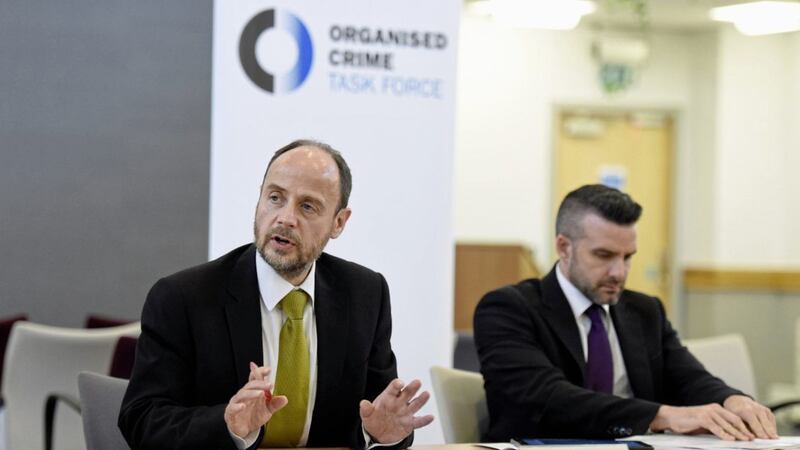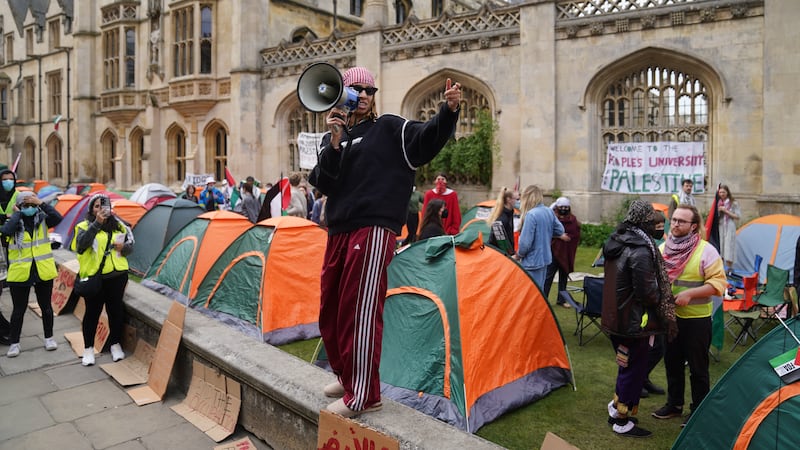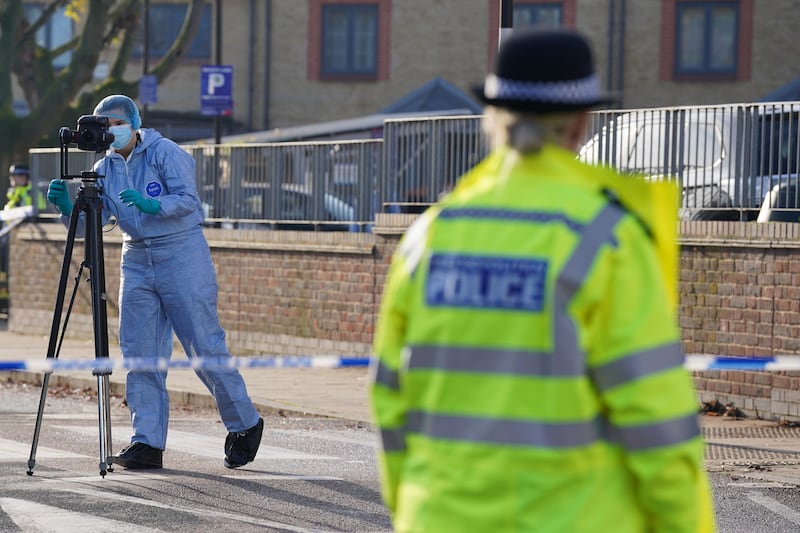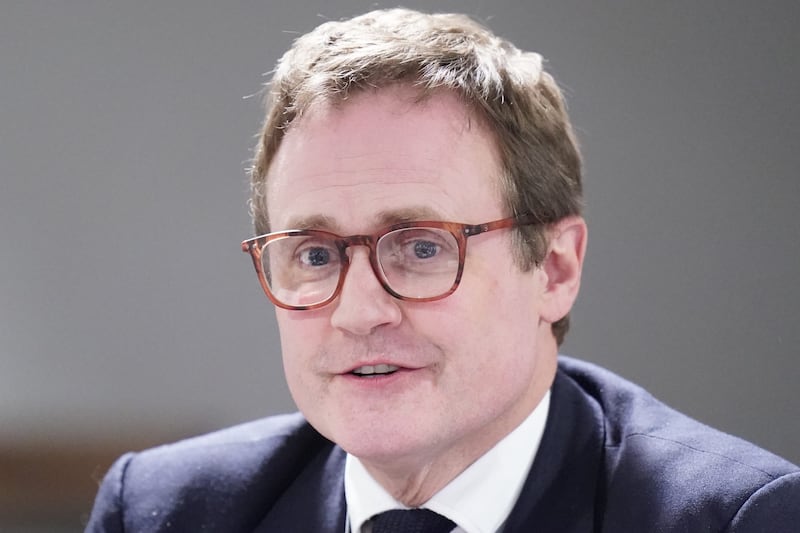MORE than 100 organised crime gangs are operating in Northern Ireland, with around one quarter of those linked to paramilitarie, a senior police officer has said.
Extortion and drug dealing remain the biggest earners for organised criminal gangs who police believe are extorting millions of pounds from thousands of small businesses across the north.
Under-threat traders, often in working-class loyalist or republican areas, are the least able to pay illegal taxes imposed by paramilitary thugs, Detective Superintendent Bobby Singleton said yesterday.
Many do not report the intimidation - a tactic used during the Troubles to raise money for paramilitary groups - which means the proceeds are now lining the pockets of individual criminal godfathers.
Mr Singleton said: "Those operating in working-class communities across the country (are) struggling to make ends meet and having to pay this totally illegal taxation to paramilitary thugs."
Extortion remains an under-reported crime with most victims too afraid to go public, but, based on intelligence, Mr Singleton said it was an "extensive problem".
Organised criminals are targeting businesses as drug dealers who are being 'taxed' so that they are then permitted to operate in the areas paramilitary groups have some control over, it was claimed.
Mr Singleton said: "It is a key point of how paramilitaries generate their funds and support their lifestyles".
Last year, 183 organised crime groups were dismantled, frustrated or disrupted.
About 10-15 per cent of organised crime groups have a foreign dimension, Mr Singleton added.
The taskforce rescued 36 people from suspected modern slavery.
Unexplained wealth orders, used to crack down on high-rolling criminals are currently used in the United Kingdom, but despite plans to introduce legislation in Northern Ireland the collapse of Stormont means that legislative change has been stalled.
Working with the National Crime Agency and HM Revenue and Customs, the police do still have the ability to confiscate criminal assets.
Since the establishment of the PSNI's Asset Confiscation and Enforcement Team last year, there has been a 150 per cent rise in the number of PSNI restraints being put in place and a 50 per cent increase in the number of confiscation orders granted by the courts.
Around £1.9 million in criminal assets was recovered last year, with half returned to law enforcement agencies, prosecutors and the courts. The remainder was allocated to initiatives to reduce crime and the fear of crime.
Last year, 183 organised crime groups were dismantled, frustrated or disrupted, head of the Organised Crime Task Force, Anthony Harbinson, claimed.
Mr Harbinson added: "I would encourage everyone to get back into government as soon as possible."








